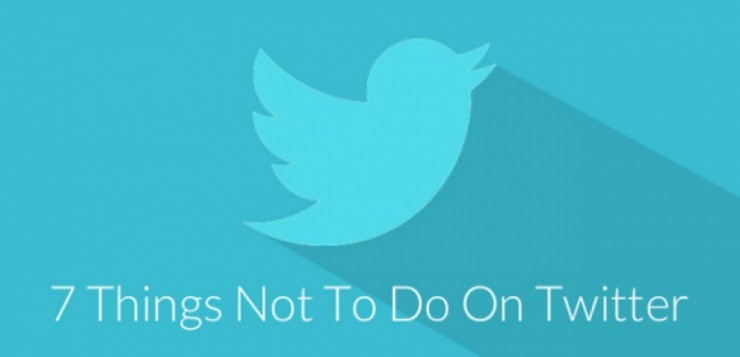Twitter is a useful tool for conversation, staying updated on your interests and job hunting.
When I started my Twitter account, I used private settings and tweeted about my random thoughts and sports updates. I refused to make it public, let alone watch random people comment on my posts.
I adapted once I discovered how helpful it was to follow companies and influential people, and eventually used it for industry trend updates, connecting with professionals and showcasing my “personal brand.”
Social media helped me find out about my last job, which was an incredible experience. Twitter can be a great asset in your job hunt, provided you avoid some common areas of difficulty.
1. Don’t keep your settings private
It’s okay to keep personal accounts on Twitter for friends.
But if you’re using Twitter for job searches and networking, your account needs to be accessible. How can anyone respond to your tweets? You might connect with a recruiter who is at the same conference as you, get instant updates on that job you’ve been waiting for, or even win a contest.
Transparency is key when utilizing social media for developing your personal brand, job hunting or networking. It also opens doors for other people to contact you about opportunities and learn more about you.
2. Don’t mix too much of your personal life with your professional life
Remember the purpose of the account. Keep in mind that an online account means 24/7 access for potential employers.
The second something goes up, someone will see it.
Post on different channels with your own discretion, or don’t post it at all. An open account should not mean unlimited access to your life.
3. Don’t exaggerate your job title
Keep your tagline current, direct, and about your profession.
Use a decent photo and include a helpful link and customized background.
It’s good to show a bit of personality, but try to keep the content relevant to your industry and how you want others to see you.
4. Don’t be too controversial
Avoid controversial topics, like politics, or starting arguments with other users.
Don’t skew an employer’s impression of your values.
Separating business and personal opinions helps you keep your personal life from affecting your professional life.
5. Don’t be ashamed to boost yourself up
Remember that you’re using Twitter as a personal branding tool.
It’s good to mention accomplishments, events, or milestones in your life.
Decide how much is appropriate – your online presence may be the strongest first impression.
6. Don’t forget to check your interactions
Stay updated with who is interacting with you.
Check your mentions for retweets, replies and followers. Regularly check your direct messages (DM) to see if someone contacted you.
Take a glance at profiles who retweeted, DM or mentioned you. See what they tweet about, perhaps you’ll find an interesting account to follow, a common interest or a potential employer.
7. Don’t forget to connect with others
Twitter was made for casual interaction.
If you find a company you like, follow them. If you find a campus recruiter from the same company, follow them, and retweet or respond to their tweets.
Twitter can be used as a learning tool as much as a social tool. Combine these experiences and output productivity for your job hunt from your time online
By Jessica Cruz, TalentEgg.ca
TalentEgg.ca is Canada’s leading job board and online career resource for college and university students and recent graduates.









Discussion1 Comment
thanks